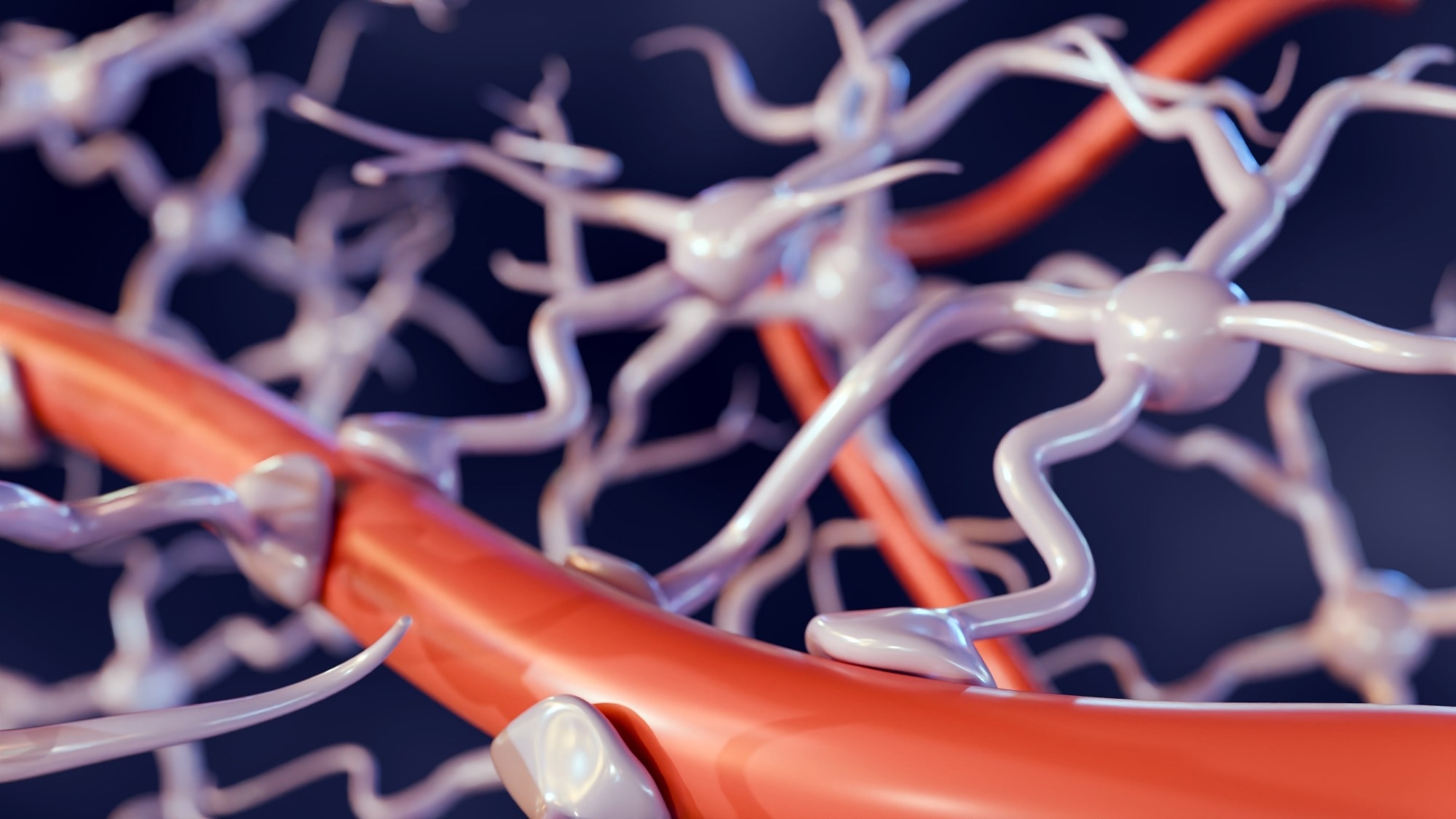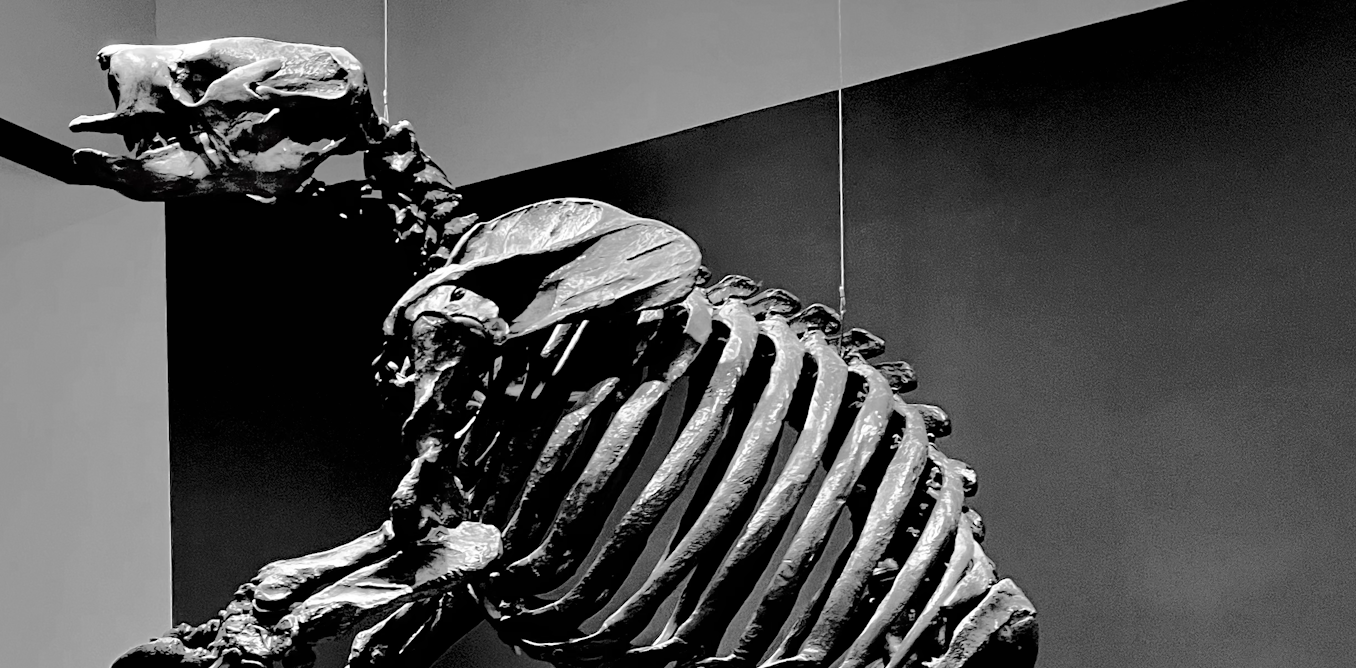By decoding the blood-brain barrier’s intricate structure and function, researchers are paving the way for new therapies that can safely breach the brain’s toughest defense.
Primer: The blood–brain barrier. Image Credit: Love…

By decoding the blood-brain barrier’s intricate structure and function, researchers are paving the way for new therapies that can safely breach the brain’s toughest defense.
Primer: The blood–brain barrier. Image Credit: Love…

Mitchell Robinson (right) had ankle surgery before last season and was limited to 17 games after he returned.
NEW YORK (AP) — New York Knicks coach Mike Brown will have to wait to show whether Josh Hart or Mitchell Robinson will start for him….
This request seems a bit unusual, so we need to confirm that you’re human. Please press and hold the button until it turns completely green. Thank you for your cooperation!
This request seems a bit unusual, so we need to confirm that you’re human. Please press and hold the button until it turns completely green. Thank you for your cooperation!

Astronomers using the James Webb Space Telescope (JWST) have captured the most detailed look yet at how galaxies formed just a few hundred million years after the Big Bang – and found they were far more chaotic and messy than those we…

Papillary muscle scarring (papSCAR) as detected by dark blood delayed-enhancement cardiovascular magnetic resonance (CMR) was present in 1 in 3 patients with

No major bank has yet committed to stop funding new oil and gas fields or coal capacity, research has found.
Most banks that have recently updated their climate policies have weakened them, according to the research by the TPI Global Climate Transition Centre (TPI) at the London School of Economics and Political Science (LSE).
The centre analysed 36 of the largest banks by market capitalisation and total assets, and found “banks are still at an early stage of their transition with decarbonisation targets that cover a limited set of sectors and business activities.”
The researchers evaluated banks’ climate policies using 77 sub-indicators grouped into 10 areas, called the net zero banking assessment framework (NZBAF).
They found 95% of the scores remained unchanged year on year, and those banks that had shifted had weakened their policies. On average, banks score on only 18% of the 77 sub-indicators and the best-performing bank scores on about one-third of the sub-indicators.
The report said banks have “weakened their disclosures in areas such as net zero commitments, financing conditions for high-emission sectors and fossil fuel policies”. Some banks either fully withdrew or weakened their net zero commitments, substituting firm language such as “commitment” or “target” with less precise wording such as “ambition” or “aspiration”.
Algirdas Brochard, banking project lead at TPI, said: “Given banks’ central role in the economy and their far-reaching influence on climate, their slow progress on the climate transition coupled with the recent dissolution of the Net Zero Banking Alliance suggest that the objectives of the Paris agreement are slipping further out of reach.”
after newsletter promotion
As well as failing to stop funding fossil fuel projects, many banks are also not funding climate solutions and the green transition. Of the 36 banks TPI assessed, 17 have financing targets for climate solutions, but the activities eligible for this financing vary from bank to bank.
Another recent study found the world’s big banks have handed nearly $7tn (£5.6tn) in funding to the fossil fuel industry since the Paris agreement to limit carbon emissions.
This year, the Net Zero Banking Alliance shut down completely after leading banks quit it following the election of the US president, Donald Trump. It had encouraged members to cut the carbon footprint of their investments and help drive the transition to net zero emissions by 2050.

Imagine a sloth. You probably picture a medium-size, tree-dwelling creature hanging from a branch….

Vietnam’s economic rise is causing ripples around Asia, especially in Thailand. Any mention of the “V word” in Bangkok causes hand-wringing and furrowed brows among the city’s business executives. Vietnam is on track to overtake Thailand by the end of the decade to become Southeast Asia’s second-largest economy. Last week, Hanoi signed a new deal with Apple to expand production of smart-home devices in Vietnam – the latest in a series of big-money technology-sector deals.
Meanwhile, many Chinese tourists have been holidaying in Hạ Long Bay, Da Nang and Phú Quốc this year, rather than Bangkok, Chiang Mai and Phuket. This trend is likely to be temporary; besides, losing low-spending tour groups can be seen as a sign of Thailand’s increasing maturity as a destination. Even so, Bangkok’s business community needs its government to come up with a big idea to kick-start a slowing economy, attract new investment and deliver a much-needed injection of confidence.
Thailand’s prime minister, Anutin Charnvirakul, recently spoke about the “nightmare” of Vietnam surpassing his country. Though he deserves credit for addressing the elephant in Bangkok’s boardrooms, his administration is short on flagship projects. Somewhat surprisingly, it backed a controversial scheme to build a Panama/Suez-style canal through the country’s Kra Isthmus. This centuries-old idea, which has evolved from being about an actual canal into a proposal to construct a so-called land bridge, is probably a placeholder until strategists and policy wonks can come up with something better.
To fully understand the depths of Thai leaders’ despair requires some historical context. The country has long been one of the region’s top dogs: decades of Cold War-era investment and infrastructure from the US military arrived at a time when neighbours Myanmar, Laos, Cambodia and Vietnam struggled with various conflicts. Thailand’s good fortune – or clever diplomacy – created a comfortable consumer class and an era of complacency. Any early warning signals that did go off this century were drowned out by an influx of Chinese money. Fifty years after the Vietnam War ended, Thailand has slipped behind in manufacturing and is becoming more and more reliant on tourism. Bangkok might host a Formula 1 race in 2028 – something that Hanoi failed to achieve amid a corruption crackdown – but there’s little to rev up interest outside of the Thai capital.
The previous Pheu Thai-led government staked its future and that of the country on legalising casinos. It botched the public-consultation process and ended up losing everything, including power, but I have been surprised in recent months by the level of support that the idea still has among business owners. No one is pro gambling per se – far from it. They just want to see their government acting and creating momentum. The casino idea elicited plenty of overseas interest; corporate lawyers and dealmakers were busy travelling to Macau, Singapore and the Philippines to do due diligence on behalf of major foreign financiers. However, because of the Thai government’s refusal to take a gamble, political flip-flopping and a revolving cast of prime ministers, those investors will be looking elsewhere.
Thailand’s next election could happen as soon as March and it’s likely to be fought on the economy. All of the leading parties will need to think hard and bring grand ideas to the table that can deliver real change to make the country richer and less indebted. Now is not the time to become bogged down in idealism. Elitist debates about democracy or constitutional reform might win fans abroad but usually meet heavy resistance at home. Instead, parties need to inspire hope and start talking up the country on the campaign trail. Thailand continues to enjoy incredible advantages and has a huge head start over its neighbours that might never be closed even when Vietnam’s economic output eventually surpasses it. A prosperous Vietnam is good for a rising region still troubled by conflict – and it doesn’t need to come at Thailand’s expense.
James Chambers is Monocle’s Asia editor. You can read his lesson in cross-border communication in Southeast Asia here. Visiting and need big plans for Bangkok yourself? Check out our City Guide.

A blind man said he is living in a “personal lockdown” after having to move…